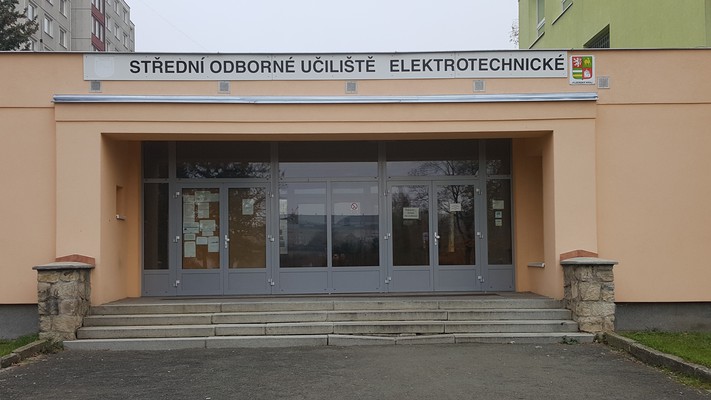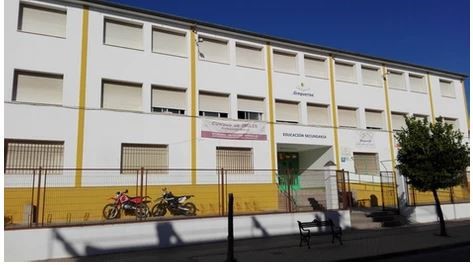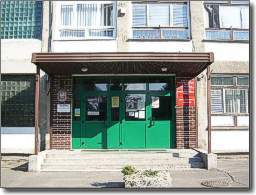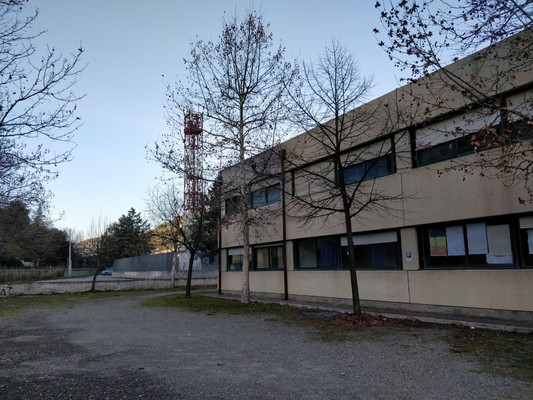SOUE Plzeň the Czech Republic
Střední odborné učiliště elektrotechnické
High and Vocational School of Electrical Engineering

SOUEPL-presentation-Erasmus.pdf

School has about 800 students who come from the city Pilsen and West Bohemia. Most of our students are Czech, but some students are from Russia, Ukraine and Vietnam. Age 15 - 20. Our school has about 40 teachers of theoretical subjects and 30 teachers of practical training. School programmes: 3 - year vocational programs of electrical engineering, 4 - year secondary branches - electrical engineering, telecommunication and information technology. In school curriculum you can find theoretical and practical special subjects which lead to their future professions but also general subjects like languages, mathematics, history etc. which form student general education and knowledge. Our students study at least one foreign language - English or German. After finishing school most students go to work but about 20% continue their study at universities or tertiary colleges. The school consists of the school itself, a dining hall and a dormitory. It has modern special labs, workshops and PC rooms.
Our school has a good experience in European projects - Leonardo da Vinci between the years 2006 - 2014. In the year 2013 the school joined the project Comenius and in the years 2014 and 2017 to the projects Erasmus+. All of them were completed with success.
This experience built a strong team in our school. The team are teachers of following subjects: English, German, Russian, History, IT and electrical engineering.
We can see the huge impact of the European projects on our students in terms of key competences and rising school results, or self-confidence. All the graduates which were and have been involved in our projects are now either university students, entrepreneurs or are working in quite good positions. Unfortunately, the impact on students has to leave inevitably the school together with the involved students. For this reason, we have to apply again and again to use a tool which proved to be successful to the new comers. Developing and implementing European projects have a huge contribution also to the individual development of our teachers, to the promotion of the school educational offer, contributing as such to the rise of the quality of the students which are choosing to study in our school.
https://www.souepl.cz/
Centro de Enseñanzas Greguerias Sociedad Cooperativa Andaluza, San Sebastian, Spain
Spain.pdf

Greguerías´is a Secondary School in a rural area near the capital city of Córdoba. The school has a lot of facilities for pupils, such as a library and a playground, each lesson is taught in a well-equipped classroom. We started teaching thirty-five years ago and nowadays we are working at Secondary School and post-secondary school with professional studies of Nursery and Gardening. We are thirty teachers and two hundred and fifty students.
Many of our students come from more or less socioeconomic disadvantaged families with and average training level. The school tries to engage students into the school´s projects to induce their motivation broaden their horizons and diminish social exclusion. Numerous school events are organized every year to help pupils. Each child is important and the teachers work hard to help. We take part each year in different programs from our region and local area, such as Eco-school, Coeducation, Library program, Chess program... And with this project we would like to give our students a global point of view about how important are the Sustainable Development Goals for our future, because they are something that already work in all the others projects at school in a transversal way.
We have applied to many previous Comenius projects. In the last years we have participated in two Erasmus projects, CLICK and actually we are working in one KA219 called: ‘Folk heritage around the Europe, keep our traditions´, KA 229 in French Language “ De l´Andaloussie à la Normandie” and a KA1: Greguerías por las Lenguas.
www.greguerias.com
Liceum Ogolnoksztalcace nr 20 w Poznaniu Poland

High School Nr. 20 in Poznań, Poland gathers students (15-19). There are about 450 students and 60 teachers in our school. We have different profiles of the classes, such as: sports, IT, art and drama, journalistic, language/psychological. Sports classes master their profession in football, handball, volleyball and have been awarded many top prizes especially in basketball. We cooperate with Poznań Univerisity with the field of journalism and SWPS University of Social Sciences and Humanities for language/psychological classes. IT lessons are equipped with I-pads, some with interactive whiteboards and use modern technology. Art and drama classes have regular performances on the stage of Nowy Theatre in Poznań. Students are taught four different languages. English is obligatory for everyone while the students can choose from among German, Spanish, French and Russian. We have many students with dyslexia, dysgraphia and learning abilities. More than 20 of our students are taught on a 1:1 basis. During the last years there have been excursions to England and students exchange with Germany and Spain. After lessons students can choose among 10 different clubs in which they can develop their interests. There is also a voluntary organization in our school that visit hospices, orphanages and help people in need. Teachers increase their qualifications and degrees by regular trainings. The school expects from their teachers a positive attitude and full support towards realizing international projects. The school is situated in a local, suburban estate inhabited by moderately-well off and sometimes poor people. Some children come from families with social problems. For them, the project is the only chance to get a life experience with foreign people and cultures. We as a local community try to create possibilities and different extracurricular activities that attract the attention and occupy students time effectively. We believe that another European project will enable us to broaden students’ horizons and develop European identity.
Participation in previous Comenius projects had an effect on the development of intercultural competence for students, parents and teachers. It showed students’ willingness to carry out different tasks and improved their language skills by using English outside the classroom environment.
I.T.S.E.T. "Manlio Capitolo" TURSI Italy
Italy_ school description.docx

ITSET “Manlio Capitolo”, was founded in 1973, since then it has been a driving force in the social and economic life of Tursi and of the rural surrounding area. It is a technical school that covers four fields: -Administration, Finance & Marketing - Tourism -Building & Environment -Information Technology. Teachers team is composed of lawyers, engineers, architects, consultants who bring their updated advanced training as professionals in this school and, depending on the subject, they can manage any international project with their expertise. Despite its prestige, in the last few years Manlio Capitolo is facing some problems in recruiting students in the hard struggle for the school-market competition. In fact, from 489 students in 2014, in 2018 the school is made up of: 390 students, 20 administrative and 57 teachers. Another goal is the cutting of the dropout rate, which is increasing rapidly, and it can jeopardise the existence of our high school. We need a change in school strategy and new ways of learning that only an EU project can offer, exchanging good practices and developing new educational tools. Most of our students come from neighbouring villages and related rural areas, with important geographical obstacles. Many of them show weak motivation to study both because of their disadvantaged socioeconomic conditions and because they lack cultural opportunities. The “Manlio Capitolo”needs a strategic planning where teachers seek effective ways, such as continuing training and implementation of European and International programs to prepare students for their European identity and to prevent early school leaving by minimizing social discrimination and promoting learning foreign languages. The school, in the past, has had several experiences in projects at international level which have culturally enriched both students and teachers. These experiences abroad (PL, ES, UK) motivated the students to learn foreign languages while living in the foreign country following the local way of living, getting in touch with new traditions, customs and habits. For students, travelling is justly considered the most effective educational instrument to learn foreign languages and through Erasmus projects they can also learn that full cooperation is an essential value in social relationships, as future EU citizens.
the school website https://www.itcgtursi.edu.it/
youtube presentation https://youtu.be/3YfAy3EfOHo